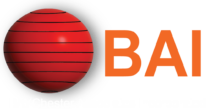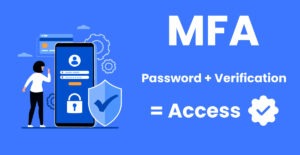
Shadow IT isn’t just a buzzword—it’s a growing problem that small businesses across Baldwin County, Mobile, Pensacola, and the Gulf Coast can no longer afford to ignore. From cybersecurity vulnerabilities to compliance risks, shadow IT can put your entire business at stake. Let’s break down what shadow IT is, the risks it brings, and how your small business can protect itself.
What is Shadow IT?
Shadow IT refers to the use of unauthorized software, apps, or devices by employees without the knowledge or approval of your IT team. Think of it as the digital equivalent of someone going rogue—except instead of causing minor disruptions, shadow IT can open the door to data breaches, compliance issues, and more.
Employees often use these tools to increase efficiency or solve immediate problems, but the risks of shadow IT far outweigh the benefits.
The Risks of Shadow IT for Small Businesses
For small businesses in Baldwin County, Mobile, and Pensacola, shadow IT poses serious challenges. Here’s why it matters:
1. Cybersecurity Nightmares
Shadow IT tools often lack the robust security features of approved software. When employees enter sensitive business data into an unverified app, they expose your company to potential breaches.
According to a 2021 report by BetterCloud revealed that the number of SaaS applications running on corporate networks was roughly three times the number IT departments were aware of.. This makes shadow IT a major cybersecurity risk for small businesses.
2. Non-Compliance Headaches
If your business operates in a regulated industry like healthcare, finance, or retail, shadow IT can lead to non-compliance. For example, using an unapproved app to store customer data might violate HIPAA, PCI-DSS, or other regulatory requirements. Non-compliance can result in hefty fines and a tarnished reputation.
3. Data Loss
Unapproved tools don’t always offer the same data recovery features as sanctioned software. If an employee leaves the company or the tool is shut down, you could lose access to critical business information.
4. Workflow Disruptions
When employees use different apps for the same tasks, it can lead to inefficiencies, miscommunications, and lost productivity. In many cases, shadow IT tools don’t integrate with your existing systems, making collaboration even harder.
5. Hidden Costs
What starts as a free or low-cost solution can quickly snowball into additional expenses. Shadow IT tools can conflict with approved software, requiring extra IT resources to resolve compatibility issues.
Local Risks: Why Gulf Coast Businesses Should Be Cautious
Small businesses in areas like Baldwin County, Mobile, and Pensacola face unique challenges, including hurricanes and other natural disasters. When your IT infrastructure is already under strain, shadow IT adds another layer of vulnerability. During emergencies, unapproved tools could disrupt communications or compromise critical data.
How to Protect Your Small Business from Shadow IT Risk
1. Educate Your Team
Start by explaining the risks of shadow IT to your employees. When they understand how unapproved tools can jeopardize security and compliance, they’re more likely to follow the rules.
2. Conduct Regular IT Audits
Perform routine audits to identify unauthorized tools and applications. The earlier you detect shadow IT, the easier it is to mitigate the risks.
3. Invest in Better Tools
One of the main reasons employees turn to shadow IT is because the approved tools aren’t meeting their needs. By offering modern, user-friendly software, you can reduce the temptation to go rogue.
4. Implement Clear Policies
Create clear, enforceable policies about what types of software and devices employees can use. Make it simple for employees to request new tools, so they feel heard and supported.
5. Partner with IT Experts
Managing shadow IT is no small feat, especially for small businesses without dedicated IT departments. That’s where Baychester Associates comes in.
How Baychester Associates Can Help
Baychester Associates specializes in IT solutions tailored for businesses in Baldwin County, Mobile, Pensacola, and the Gulf Coast. Here’s how we can help mitigate the risks of shadow IT:
- IT Audits: We’ll identify and eliminate unauthorized tools, ensuring your network stays secure.
- Custom IT Policies: Our team will work with you to develop practical policies that balance security and employee productivity.
- Secure Solutions: We provide cutting-edge software and hardware designed to meet your business needs.
- 24/7 Monitoring: With our Remote Monitoring and Management (RMM) services, we keep an eye on your network around the clock, catching vulnerabilities before they become problems.
Visit Baychester Associates to learn more about how we can safeguard your small business from the risks of shadow IT.
Final Thoughts
The risks of shadow IT are real, but they’re also manageable. By taking proactive steps to address unauthorized tools, you can protect your small business from data breaches, compliance violations, and other costly problems.
If managing IT feels overwhelming, Baychester Associates is here to help. We proudly serve small businesses across Baldwin County, Mobile, Pensacola, and the Gulf Coast with tailored IT solutions that keep your business secure and running smoothly.


